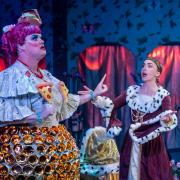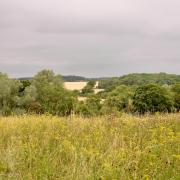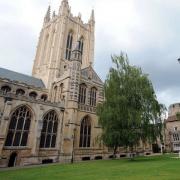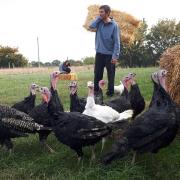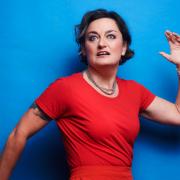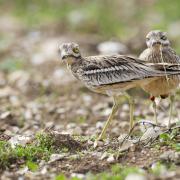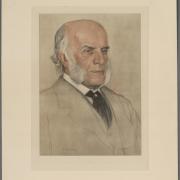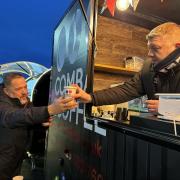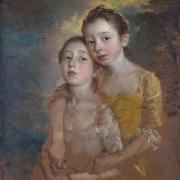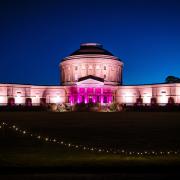Best known for his children’s book The Boy in the Striped Pyjamas, John Boyne has written 14 novels and has, he says, more ideas than he could ever write. He’s returning to Suffolk for this year’s Southwold Literary Festival
His home is very much in Ireland, but the best-selling, award-winning writer John Boyne has an enduring affection for this region. ‘It’s a great place for walking,’ he says, recalling his time as a student and then tutor at the University of East Anglia. ‘I’d walk a lot round the lake and through the woods, thinking about the writing I was doing, and the dramas that were going on in the course.’
He’s been returning here throughout the past 30 years as his star has risen. He's probably best known for his children’s book, The Boy in the Striped Pyjamas, which has sold more than 11 million copies worldwide and has been adapted for film, ballet, theatre and opera. But John has also written 14 novels, six books for younger readers, and short stories. His subject matter is broad-ranging as he explores genre, structure and style, but, he says, his books share common themes.
‘Obviously I’ve written a lot about the Second World War and the Holocaust,’ he says, ‘and that’s not something that I set out to do each time – it finds its way into the stories. But there’s a lot of loyalty and friendships in my books. There’s often a figure of innocence next to a figure of authority, and there’s usually a moment of betrayal somewhere.’

John doesn’t shy away from difficult subjects; even his children’s books have dealt with war, Nazi youth, a mother dying and a transgender teenager, while his fiction often focuses on historical storylines and ‘tends to be quite long'. His latest book is a shorter, ‘quieter’ approach to storytelling for him, he says. ‘I wanted to write something more intimate.’
Water is the first of what will be a quartet of novellas, each taking its title from the four elements, all sharing a theme of abuse, with different perspectives, linked by minor characters who in turn become the narrators.
‘Sometimes I think it’s nice to have a book you can read in a day or two,’ he says of the shorter form. ‘You can lose yourself in the voice of this person. I hope that the stories are engaging and you’ll want to know what happens next. And the narrators are people whose experiences and troubles are ones you can relate to and want to discuss with other readers.’
Though Water is tackling challenging subject matter, the story is told beautifully and sensitively. ‘I think in writing fiction, you want to write about human experiences. You want people to have an emotional response to it,’ he says. ‘I’ve always been the kind of writer who is more emotional than intellectual. I write much more from my heart than my head. I prefer the idea of somebody being moved by a story rather than thinking it’s very clever.’

The book is informed by John’s own recent experience in which a teacher at his former school in Dublin was charged with abuse. Unlike his previous work, he admits that writing these books have taken a toll. ‘They’re certainly having an effect on me as I’m writing them,’ he says. ‘That’s never really happened to me in my books before.’
In Water we're introduced to Vanessa, a woman who’s escaped to a scarcely populated island. The remote location and lack of company have forced her to confront her past and to think about her role and complicity in her husband’s crimes, which are slowly revealed.
‘The challenge of this book was to make her voice authentic, to keep the reader uncertain about what she knew and what she didn’t know,’ he says. ‘Because in many ways, I think she’s uncertain.’
John will be visiting Southwold this month to talk about Water. It's part of a nationwide tour introducing the quartet; Earth, Fire and Air will follow at six monthly intervals over the next two years. He's already thinking about what he’ll be writing next.

‘I seem to have a good creative imagination,’ he says. ‘I’ve got a list on my computer of so many ideas that I could never have the time to write. I often say to students on writing courses, if you’re reading and writing all the time, you become much more open to ideas and you see them all around you.’
The huge success of The Boy in the Striped Pyjamas in 2006 may have given him freedom to experiment with his writing. It changed his life completely, he says; he now thinks of time as ‘before Bruno’ – the central character – and ‘after Bruno’.
‘It made the foundations for the career I’ve had ever since, and I’m still really proud of it,’ he says. ‘I find rarely a day goes by when somebody doesn’t talk to me about it and I’m always happy to. I’m not like the singer who won’t sing his biggest hit.’
Ironically, he thinks his greatest hit wouldn’t be published today. ‘It’s a much more controversial novel today than it was in the first 14 years of its life,’ he says. ‘In children’s publishing now there is a fear of social media and of a book being criticised.’ There is pressure now for authors to write only from personal experience.
‘My feeling is that anybody can write any story they want to write,’ he says. ‘Nobody should be telling anybody to “stay in your lane”. We don’t read like that. We read to find out about other people’s lives and other people’s experiences. So we have to be able to allow writers to do that without instantly condemning them.’
So what’s next? Something completely different – a picture book for very young children, told in rhyme. John's been working with an illustrator and says it’s been huge amounts of fun to do. ‘It’s about a dancing dog and his little boy master who wants to be an astronaut. They have adventures and go to the moon, and dance a lot. It’s a lot of fun. It’s always fun to try different things.’
Water by John Boyne is published by Doubleday.
John Boyne's Christmas list
‘There are a couple of books that came out this year that I’ve really liked. Claire Kilroy’s novel Soldier, Sailor. We read so much about how wonderful it is having a baby, but actually it’s also very hard. She’s written this fantastic novel about a young mother.
There’s a novel called Service by Sarah Gilmartin, which is about ‘me too’ but set in a restaurant. That’s really good. I liked that a lot. And I’ve started reading a book called The List by Yomi Adegoke. I saw it in a bookshop and picked it up. It has a very striking purple cover. I read the back and just started reading.'
Southwold Literary Festival is back
There's been a literary festival in Southwold for almost 30 years, but it was brought to an end by the Covid pandemic. This year, librarian Charlotte Clark, bookshop manager Steph Burridge and Southwold Arts Centre Trustee Andrew Taylor decided to relaunch the autumn event with a weekend of author talks at Southwold Arts Centre.
Suffolk residents, such as novelists Esther Freud and Louis de Bernieres, are lending their support and will talk about their latest books. Cookery writer and Two Magpies founder Rebecca Bishop, and antiques expert Geoffrey Munn, will be talking about their careers and their love of Southwold, while novelists Heidi Swain and Kate Thompson will share their stories set in the world of books.
John Boyne and Ben Aaronovitch are headlining the event, and including Southwold in nationwide tours promoting their new work.
‘We wanted a mixture of fiction and nonfiction, literary big-hitters and writers in different genres represented on the programme,’ says Charlotte, who runs the highly successful crime writing festival, Slaughter in Southwold, each summer.
‘There’s been a lot of excitement that we’re doing this. People are pleased that they haven’t lost something in the town. It’s important we keep these things going. And with authors bringing out new books for Christmas, November is a good time to run a literary festival.’
Southwold Literary Festival, November 4-5 at Southwold Arts Centre. T: 01502 722572 southwoldartscentre.co.uk




